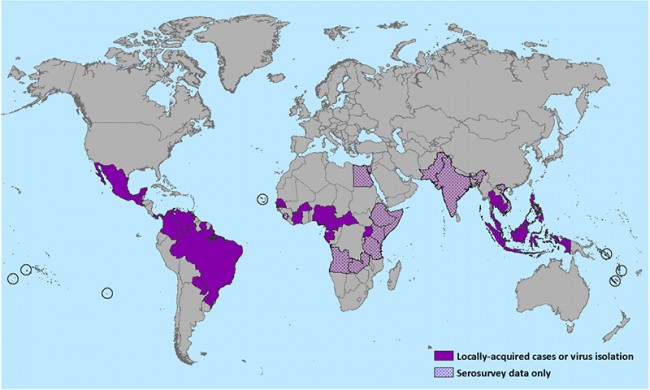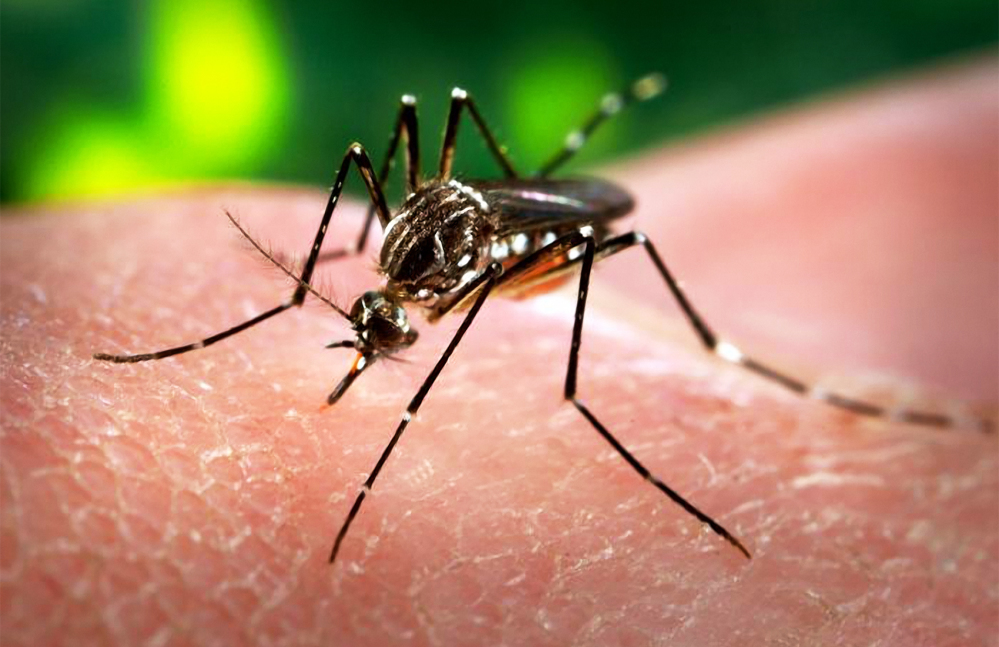
If you’ve been following health stories around the internet you’ve probably heard of EBOLA, Lassa fever and now ZIKA Virus. Unfortunately, the virus which was recently thought to be contained in South America is now spreading at an exponential rate to other locations and continents. As of the 2015, there were more than 1 million estimated cases in Brazil by the end of 2015.
To give you a better perspective on how significant this virus is, the World Health Organization has only held 3 emergency conveyances due to a health pandemic. The instances were for the Swine flu in ASIA, the resurgence of POLIO in ASIA and the EBOLA pandemic in AFRICA. This week, WHO will now hold its 4th emergency conveyance and that will be for the ZIKA Virus.
Below is a map of where the outbreak has been reported as of the end of 2015

We bet at this time you’re probably asking what the heck a ZIKA Virus is, how you can prevent yourself from getting infected and a bunch of other million questions. Well, we’re here to break it all down for you.
How is it transmitted?
According to the Centers for Disease Control and Prevention, here are the ways in which ZIKA virus can be transmitted:
Through mosquito bites
Zika virus is transmitted to through the bite of an infected Aedes species mosquito. The same mosquitoes that spread Dengue and Chikungunya viruses.
- These mosquitoes which lay eggs in and near standing water are aggressive daytime biters, prefer to bite people, and live indoors and outdoors near people.
- Mosquitoes become infected when they feed on a person already infected with the virus. Infected mosquitoes can then spread the virus to other people through bites.

From mother to child – although very rare
- A mother already infected with Zika virus near the time of delivery can pass on the virus to her newborn around the time of birth, but this is rare.
- It is possible that Zika virus could be passed from mother to fetus during pregnancy. This mode of transmission is being investigated.
- To date, there are no reports of infants getting Zika virus through breastfeeding. Because of the benefits of breastfeeding, mothers are encouraged to breastfeed even in areas where Zika virus is found.

Through infected blood or sexual contact
- Spread of the virus through blood transfusion and sexual contact have been reported.

What are the symptoms?
Unfortunately, 1 in 5 who get infected with ZIKA virus become ill; the incubation period (the time from exposure to symptoms) for Zika virus disease is not known, but is likely to be a few days to a week. The most common symptom of the virus has also been a rise of microcephaly birth defect cases. Where babies are born with small heads and small brains. So pregnant women are asked to stay away from infection prone areas.



The CDC is also investigating a rare paralysis syndrome called Guillain-Barre which is an immunological reaction that can also occur after other viral or bacterial infections. Below are some of the other symptoms that can develop after getting infected:
- Fever, rash, joint pain, or conjunctivitis (red eyes).
- Other common symptoms include muscle pain and headache.
- The illness is usually mild with symptoms lasting for several days to a week.
- Zika virus usually remains in the blood of an infected person for a few days but it can be found longer in some people.
- Severe disease requiring hospitalization is uncommon.
- Death is possible but rare.
What treatments are available?
Unfortunately, no vaccines or medications are available to prevent or treat Zika infections. But what can you do if you do get infected:
- Get plenty of rest.
- Drink fluids to prevent dehydration.
- Take medicine such as acetaminophen to relieve fever and pain.
- Do not take aspirin and other non-steroidal anti-inflammatory drugs (NSAIDs), like ibuprofen and naproxen. Aspirin and NSAIDs should be avoided until dengue can be ruled out to reduce the risk of hemorrhage (bleeding). If you are taking medicine for another medical condition, talk to your healthcare provider before taking additional medication.
Prevention
Since no vaccinations currently exist to prevent Zika virus, the only prevention is to avoid getting bitten by mosquitoes in infected areas. So as with all preventions for Malaria,
- Stay away from places or do not travel to places with ZIKA outbreak
- Wear long-sleeved shirts and long pants.
- Use window and door screens to keep mosquitoes outside and sleep under a mosquito net.
- Use insect repellents.
- If you have a baby or child: Do not use insect repellent on babies younger than 2 months of age.
- Dress your child in clothing that covers arms and legs.
The content of this article has been inferred from CDC – Centers for Diseases and Control. For more on information on Lassa Fever, please click here

Wow. I hope they find a vaccine fast. Real fast
This is already in Africa !!!!!!
nawa ho,may God always protect us.
Amen
It can nt get 2 Nigeria in Jesus amen………
Na lagos go first get am cos dem dey gud in receivin any diseases from outsid country
Wow. Thanks for this info. If its really spread through mosquito bites, many people will get this disease but i believe and trust God that it will not come near us
This is a timely discovery unlike ebola which caused damages before discovery.Keep it up.
Thanks for the enlightenment…..